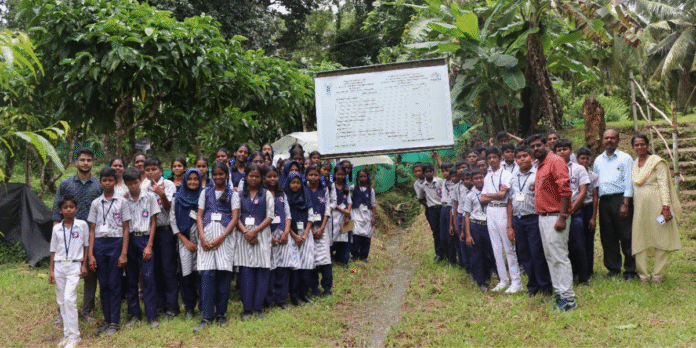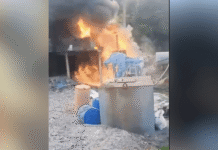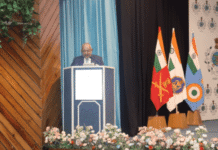On September 3, 2025, ICAR-Central Island Agricultural Research Institute (CIARI) at Garacharma in Sri Vijaya Puram opened its doors to 58 students from Government Senior Secondary School, Mannarghat, and RGT Public Vidyalaya. Accompanied by six teachers, the group was introduced to a wide range of agricultural, fisheries, and biodiversity initiatives, offering hands-on experience in science-based farming practices and environmental awareness.
The visit was structured to give students a comprehensive understanding of integrated farming approaches. Principal Scientist I. Jaisankar explained the concept of Integrated Farming Systems, which combine crops, trees, and livestock to increase productivity while sustaining natural resources. The emphasis on organic farming, coupled with diversification into vegetables, fruits, spices, animal husbandry, and aquaculture, was highlighted as a pathway to improve rural incomes and generate employment in the islands.
Technician Shivani Kumari guided the group through Dr. A.P.J. Abdul Kalam Medicinal Garden, where therapeutic plants are conserved and displayed to raise awareness about the region’s biodiversity. She also introduced the freshwater ornamental fish unit and explained the growing interest in fish spas, which provide both livelihood opportunities and tourism potential.
Senior Scientist R. Kiruba Sankar discussed the fisheries museum, which showcases the diverse marine life of the Andaman and Nicobar Islands. The museum not only highlights fish biodiversity but also illustrates the ecological importance of marine ecosystems. The visit to this section underscored how the islands’ aquatic resources are central to both food security and conservation efforts.
Adding to the experience, Bikash Ch. Mondal briefed students on butterfly biodiversity, drawing attention to the ecological significance of insect populations in maintaining balance in island ecosystems. The session highlighted how butterflies serve as indicators of environmental health, making their study vital for biodiversity management.
Before the sessions began, scientist D. Karunakaran welcomed the students and provided an overview of the institute’s research activities, spanning agriculture, fisheries, and allied sciences. Karunakaran also coordinated the visit with support from Senior Technical Assistant Asma Bibi, Technician Ali Akbar, and Young Professional-1 C.P. Vijayan from the Agricultural Knowledge Management Unit.
The educational tour was conducted under the leadership of Director Eaknath B. Chakurkar. By combining theory with practical exposure, the visit aimed to inspire students to take interest in agriculture, fisheries, and environmental science as future career options.
Such initiatives highlight how ICAR-CIARI plays a dual role in both research and community outreach. While its research agenda focuses on sustainable farming systems and biodiversity conservation, its educational activities ensure that young minds are engaged in understanding these fields. For the islands, where agriculture and fisheries remain key livelihoods, such interactions may encourage a new generation of students to pursue careers in science, technology, and rural development.
By the end of the visit, the students gained a detailed exposure to integrated farming methods, the importance of organic practices, biodiversity conservation, and marine life studies. With agriculture and fisheries forming the backbone of the islands’ economy, CIARI’s efforts to involve students in its mission underline the need for local capacity-building.
The trip served as a platform to connect classroom learning with field experiences, leaving students with a deeper appreciation of how research institutions contribute to everyday life in the Andaman and Nicobar Islands.





